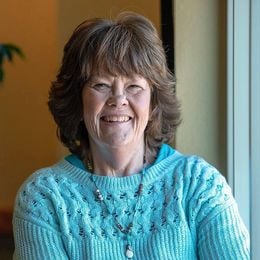Who Is Middle Class and Why It Matters
As the presidential campaign heats up, the middle is the message
During the Republican Presidential Debate on Thursday night, you’re almost certain to hear the candidates talk about helping the middle class. Restoring the middle class has been a constant theme of Hillary Clinton’s campaign, too.
But what exactly, is the middle class? Is it defined by wealth or values?
The truth is, the “middle class” is a squishy term. And, it seems, everyone has their own definition. So you’ll need to be cautious about how the presidential hopefuls use it.
The Middle-Class Millionaires
Even millionaires tend to think of themselves as middle class. In a recent CNBC Millionaire Survey of 750 Americans worth $1 million or more, 44 percent of the millionaires described themselves as “middle class” and another 40 percent described themselves as upper middle class.
Retired schoolteacher Karen Robertson, 72, and her husband, Barry, 71, a retired farrier (a craftsman who trims and shoes horse’s hooves) and fireman in Widomar, Calif., have a six-figure income, a comfortable net worth and are debt free. “We worked hard, gave generously, tithed, saved and lived below our means for 43 years,” Karen said. “We raised our kids in a brand new mobile home with more amenities than I grew up with. I’ve never thought of us as anything but middle class.”
Yet, when she thinks about the definition of “middle class” in terms of financial wealth, it makes her wonder.
Robertson’s confusion isn’t uncommon, particularly among people in their 50s, 60s and 70s.
“Once upon a time, a middle-class income provided for a middle-class lifestyle: a home with a TV, a car, a college education for the children and a vacation once a year,” said Stephanie Genkin, an independent financial planner in New York City. “Baby boomers didn't have to save for their own retirement the way Gen X and Millennials do today, and health care costs were under control, especially for people with insurance. So you could earn the median income and afford a middle-class lifestyle.”
Upper and Lower Middle Class
The American middle class, as a social class, is a term that first became popular after World War II. Over time, sociologists have used a fluid definition, typically using the phrase to include the nation’s upper-middle class, which consists mainly of college-educated professionals.
The lower-middle-class has often been viewed as people with less education, less work autonomy and lower incomes. Their couples also typically need two incomes to support their families comfortably.
However, income and financial wealth are only part of the definition of a social class, said Margaret J. King, director of the The Center for Cultural Studies & Analysis, a think tank in Philadelphia, Pa., which consults with Fortune 50 companies on issues such as class.
“Contrary to popular opinion, middle class has little to do with wealth,” said King. “Middle class is a mindset that rests on the platform of education, decision-making, upward mobility, faith in the future and in the power of self-determination.”
It's All About Moving Up
The main difference between poverty and middle class and between middle class and wealthy, noted King, “is belief in, and planning for, moving up as a working assumption.”
The definition matters, King said, because it affects how Americans see themselves. “When people can see this is far more than money, it focuses on the right stuff to attain and maintain middle-class membership and mobility,” she said.
It's not about the money, noted King; money is an outcome. “It's about the mindset that sees people as centers of the wealth and stability in themselves, with careers or professions rather than jobs, opportunities for advancement at work and in the social marketplace,” she said.
Genkin agreed: “When people self-define themselves as middle class, it’s more about values, the belief in upward mobility and income equality, not their income.”
Valuing Middle Class Values
Karen Robertson said that when she puts the definition of middle class more in terms of her values, it makes more sense to her. “I think I have middle-class behavior because I live for God, love people and respect life,” she said. (She spends much of her time raising funds for Brain Research In Cancer Kids, an organization that researches pediatric brain cancer.)
So if being middle class has little to do with income and wealth and is more of a state of mind, why do we keep hearing about the middle class shrinking?
“There is a perception of the shrinking middle class because of income inequality,” said King.
Genkin added that income inequality has become a national concern because if people fall out of a comfortable income level and then see no hope for the future, the values the middle class hold dear will fade.
“It’s a cause of concern for politicians because if we don’t believe the same thing as a nation about hope and that anyone can make it in the United States, we lose those values,” said Genkin.


